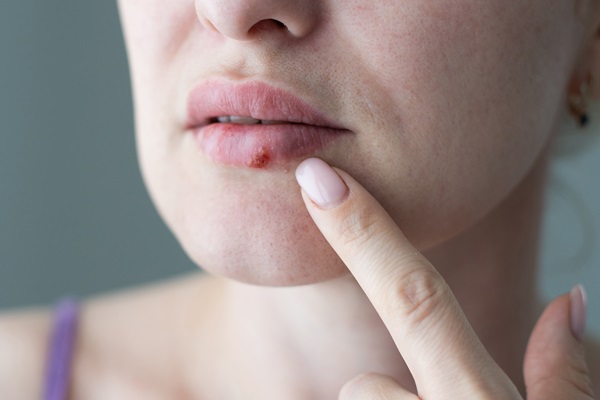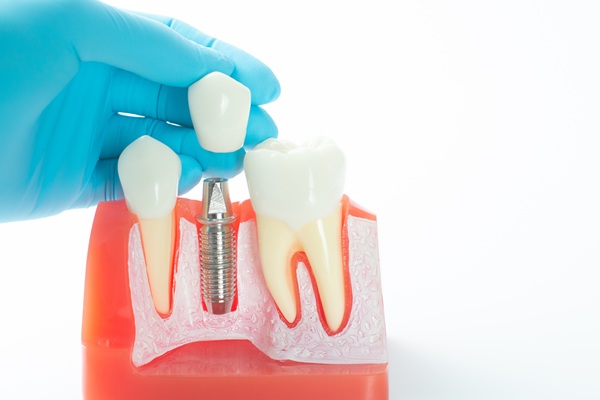When To Visit a Dentist for Cold Sore Treatment

Cold sore treatment from a general dentist can provide fast, effective, and long-lasting relief, especially for recurrent or severe sores. However, it can be hard to tell when to upgrade from over-the-counter treatments. Reading up on the signs that indicate the need for professional cold sore treatment can help you get the care you need as soon as possible.
Cold sores: What you need to know
Cold sores are small, painful blisters that form on or around the lips. Also known as fever blisters, they are typically caused by the herpes simplex virus type 1 (HSV-1), which lies dormant in the body until it is activated and reactivated by triggers. Common triggers include:
- Fatigue and stress
- Exposure to strong sunlight
- Cold, windy, or other extreme weather conditions
- Certain foods (typically meats, beans, and dairy)
- The common cold and similar illnesses
Once HSV-1 is activated, cold sores will appear. Patients often experience tingling, itching, or burning sensations around the sore. These symptoms should subside as the cold sore heals on its own — within about one to two weeks on average.
When to see a dentist about cold sores
Although cold sores go away on their own, it is recommended to consult a general dentist if they are severe and recur frequently. A dentist can identify secondary infections or underlying health issues, if any, and provide targeted treatments to manage symptoms and prevent complications. Here are common signs that indicate the need for professional cold sore treatment:
- Cold sores that do not heal within 10 to 14 days
- Frequent outbreaks, such as multiple times a year
- Severe pain that makes it hard to eat or speak
- Inflammation in the lips or gums
- Spreading cold sores that extend to other areas of the mouth, gums, or face
Another common sign is when over-the-counter (OTC) treatments, such as creams and patches, do not provide sufficient relief from symptoms. These products are designed to reduce inflammation and alleviate pain, so see a dentist if the cold sore does not improve after several days of use.
Cold sore treatment options from a dentist
When OTC treatments are not enough, general dentists can provide more advanced cold sore treatments. For example, they can prescribe strong antiviral medications and topical pain relief to help reduce the severity and duration of cold sore outbreaks. A more advanced option is low-level laser therapy (LLLT), a noninvasive cold sore treatment that speeds up healing and reduces the frequency of future outbreaks.
A general dentist can also offer guidance on managing cold sore triggers to reduce outbreak frequency. This often includes lifestyle changes to manage stress, avoid triggering foods, and protect oneself from sun exposure.
Get relief from cold sores
Frequent or severe cold sores can be a bother. However, our team at Oakland Dental Implant Center provides cold sore treatments in Oakland to help patients maintain better oral health and overall well-being. Contact us today to learn more in an appointment.
Request an appointment here: https://dentalimplantsoakland.com or call Oakland Dental Implant Center at (510) 257-2284 for an appointment in our Oakland office.
Check out what others are saying about our services on Yelp: Cold Sore Treatment in Oakland, CA.
Recent Posts
It is essential to visit a family dentist every six months to maintain proper oral health. While it is possible to keep the teeth and gums suitably clean with appropriate brushing and flossing techniques, excellent home care is never a substitute for professional cleanings and preventative care. However, there are more benefits to routine dental…
Learning about the many benefits of dental implants is something everyone who is missing teeth needs to do before making a final tooth-replacement choice. The fact that there have been many improvements in the dental niche over recent years means that dental patients have more choices than ever before. Ready to learn more about this…
Cold sores are a common viral infection that can cause discomfort, pain, and self-consciousness. Fortunately, cold sore laser treatment is a highly effective solution for managing these viral outbreaks, offering fast relief and promoting quicker healing. This approach targets the affected area directly, reducing the intensity of symptoms and preventing future flare-ups.Cold sores, also known…
You may have recently had a dental checkup and been told that you have gum disease. While no one likes to find out they have a gum infection, there are various treatment options available, depending on the severity of your condition. Laser periodontal treatment, for example, is a minimally invasive alternative to conventional treatments.Periodontal disease,…


